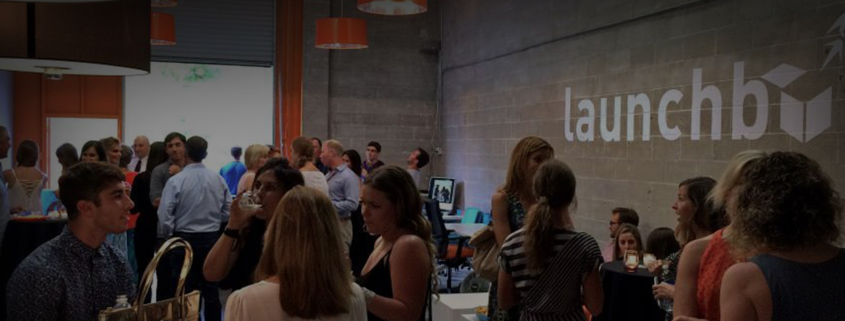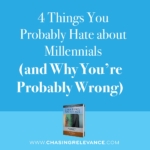3 Things a 75-Year Harvard Survey of Adult Life Tells Us about Millennials Today
What’s the most important life/work skill?
When we ask people this question in our launchbox workshops, at our clients’ workplaces, in our extended professional networks, and at keynote presentations, the number one answer by far is “communication,” followed by listening, discipline, passion, and persistence. (My teenage son Matthew said “forgiveness,” so I asked him what he had done wrong.)
I’ll take all of that. But I want something deeper. I want more. Communication and all the other answers are important, but they are components of the number one life/work skill.
BUILDING RELATIONSHIPS
Everything—from money and knowledge to power and love—boils down to interacting with other people. Positive relationships lead to positive mindset and intent and are essential in business for morale, productivity, innovation, loyalty . . . positive relationships lift all of these things and much more. Relationships are about connecting. It is easy to get information any time from your smartphone, but how are you connecting?
In business, connecting with other human beings creates much more than results: It leads to health, thoughtfulness, balance—and happiness.
This is not a hypothesis. Just watch Robert Waldinger’s TED talk, “What makes a good life? Lessons from the longest study on happiness” (bit.ly/1PxtGLt). Waldinger is a clinical professor of psychiatry at Harvard Medical School and the director of the Harvard Study of Adult Development, which may be the longest study of adult life ever done. For seventy-five years, starting in 1938, the Harvard study tracked the lives of 724 men (about a third of them Harvard sophomores and the other two-thirds twelve- to sixteen-year-olds from inner-city Boston). As the men aged, the study asked them deep questions about their professional and personal lives.
And what did Waldinger say was the clearest message from this seventy-five-year study?
“Good relationships keep us happier and healthier. Period.”
Waldinger then laid out three lessons he learned about those relationships.
- Social connections are really good for us, and loneliness kills.
- People who were the most satisfied in their relationships at age fifty were the healthiest at age eighty.
- Good relationships don’t just protect our bodies, they protect our brains.
In the end, Waldinger says, “Good, close relationships are good for our health and well-being, this is wisdom that’s as old as the hills. Why is this so hard to get and so easy to ignore? … Relationships are messy and they’re complicated and the hard work of tending to family and friends, it’s not sexy or glamorous. It’s also lifelong. It never ends.”
Exactly. So knowing this, what are you going to do to connect and create great relationships with your millennials in the workplace?
Need help answering this question and getting started? Let us help you stop chasing relevance and make it happen. For more on the power of relationships, check out Part One of Chasing Relevance: 6 Steps to Understand, Engage, and Maximize Next-Generation Leaders in the Workplace TODAY.


